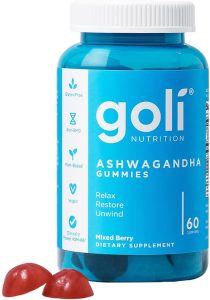Vitamin D 2025: Absolute Sunshine Vitamin, Benefits and Importance of Vitamin D
Introduction:

Vitamin D, often referred to as the “sunshine vitamin,” plays a crucial role in maintaining overall health and well-being. From supporting strong bones to boosting the immune system, this essential nutrient offers an array of benefits. In this article, let’s see the importance of this Vitamin , its work, and its role, explore its sources, discuss the risks of deficiency, and provide insights on maintaining optimal levels.
1 . The Importance of Vit D: This Vitamin is not just about bone health; it plays a multifaceted role in our body. Vit D is an essential nutrient that plays a vital role in many aspects of health. It is best known for its role in bone health, but it also has important functions in the immune system, muscle function, and cardiovascular health.
2 . How Does Vit D Work?
Its is a fat-soluble vitamin that the body can produce when it is exposed to sunlight. It can also be obtained from certain foods and supplements. This Vitamin is converted into its active form in the kidneys. The active form of vitamin D helps the body absorb calcium and phosphorus from the intestines. Calcium and phosphorus are essential for building and maintaining strong bones and teeth
3 . The Role in Immune Health: One of the most intriguing aspects of this Vitamin is its influence on the immune system. Research suggests that it plays a vital role in modulating the immune response, helping the body defend against infections and diseases. Adequate levels of this Vitamin have been associated with a reduced risk of respiratory infections and autoimmune diseases. By supporting immune cell function and reducing inflammation, Vitamin D contributes to a more robust and effective immune system.
- Muscle function: It is essential for muscle function. It helps the muscles contract and relax. Vit D deficiency can lead to muscle weakness and fatigue.
- Cardiovascular health: Vitamin D may have a role in cardiovascular health. It may help lower blood pressure and reduce the risk of heart disease.
- Vitamin D and Mood Regulation: Beyond its physical benefits, it also has a role in mental well-being. Several studies have investigated the link between Vitamin D levels and mood disorders such as depression and seasonal affective disorder (SAD). While the exact mechanisms are still being explored, it’s believed that Vitamin D’s impact on neurotransmitters and its anti-inflammatory properties may contribute to its mood-regulating effects. Ensuring sufficient Vitamin D levels might be a simple yet valuable strategy for maintaining a positive mood, especially during the darker months.
- Taking the Right Steps: When it comes to ensuring optimal Vit D levels, it’s essential to strike a balance. While sunlight is a natural and effective way to produce this Vitamin , excessive sun exposure can increase the risk of skin damage and cancer. Therefore, aim for moderate sun exposure and consider sunscreen after the initial minutes in the sun. Moreover, factors such as geographical location, skin tone, and time of year can influence your ability to produce Vit D through sunlight.
Sources of Vitamin D:
- Sunlight: The most natural source of this Vitamin , Spending time outdoors in sunlight, especially during midday, allows your skin to produce it.
- Fatty Fish: Salmon, mackerel, and sardines are excellent sources of Vit D.
- Egg Yolks: Eggs contain small amounts of Vit D, mainly in the yolk.
- Fortified Foods: Some foods, such as fortified milk, orange juice, and breakfast cereals, are enriched with Vit D.
- Supplements: If you have limited sun exposure or specific dietary restrictions, Vitamin D supplements can help meet your needs.

- 4 . The Risks of Deficiency: A deficiency in Vit D can lead to a range of health issues. It’s associated with weakened bones, increased susceptibility to infections, fatigue, and even mood disorders like depression. People with limited sun exposure, darker skin tones, and certain medical conditions are at a higher risk of deficiency.
- 5 . Maintaining Optimal Vit D Levels: The recommended daily intake of vitamin D for adults is 600 IU (international units). However, some people may need more vitamin D, especially those who are at risk of deficiency. Your doctor can help you determine how much vitamin D you need.
 6 . How to Test for Vit D Deficiency
6 . How to Test for Vit D Deficiency
A blood test can be used to measure your vit D levels. The test measures the amount of 25-hydroxyvitamin D (25(OH)D) in your blood. 25(OH)D is the inactive form of vit D that is converted into its active form in the kidneys. https://amzn.to/3KOykv8
7 . Symptoms of Vit D deficiency
The symptoms of vitamin D deficiency can be vague and may not appear until the deficiency is severe. Some common symptoms include:
- Fatigue
- Muscle weakness
- Bone pain
- Depression
- Frequent infections
8 . How to Prevent Vit D deficiency
The best way to prevent vit D deficiency is to get enough sunlight exposure. However, if you live in a northern climate or spend a lot of time indoors, you may need to get vit D from food or supplements.
9 . Tips for Preventing Vit D Deficiency
-
- Sun exposure: The best way to get this vitamin is from sunlight. Spend time in the sun during the morning or evening when the sun’s rays are less intense. However, the amount of vit D you produce from sunlight depends on several factors, including the time of day, the season, your skin colour, and the amount of sunscreen you use. Aim for 10-30 minutes of sun exposure on your arms, legs, or face a few times a week, depending on your skin type and location.
- Foods: Some foods are naturally rich in vit D, such as fatty fish, egg yolks, and fortified milk.
- Supplements: If you cannot get enough vitamin D from sunlight or food, you may need to take a supplement.

Conclusion: Vitamin D, often dubbed the “sunshine vitamin,” is an essential nutrient with a wide range of benefits for our physical and mental health. From strengthening bones and supporting the immune system to regulating mood, its impact is far-reaching. By combining sensible sun exposure, Vitamin D-rich foods, and professional advice, you can take proactive steps toward maintaining adequate Vitamin D levels and reaping the rewards of a healthier, happier life. Remember, achieving balance and seeking expert guidance are keys to unlocking the full potential of this remarkable nutrient.
This post contains affiliate links, which means I earn a commission if you purchase through these links. This comes at no additional cost to you and helps support the content I create. I only promote products/services I believe in and use myself. Your support is greatly appreciated!
Disclaimer: The contents of this article are intended to raise awareness about common health issues and should not be viewed as sound medical advice for your specific condition. You should always consult with a licensed medical practitioner before following any suggestions outlined in this article or adopting any treatment protocol based on the article’s contents.


